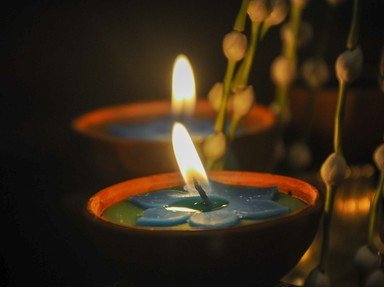
Celebrate! Trivia Quiz
Religious Festivals of the World
Joyful and boisterous, or sedate and respectful, religious festivals are a major component of most of the world's cultures. How much do you know about these celebrations?
A collection quiz
by LadyNym.
Estimated time: 3 mins.